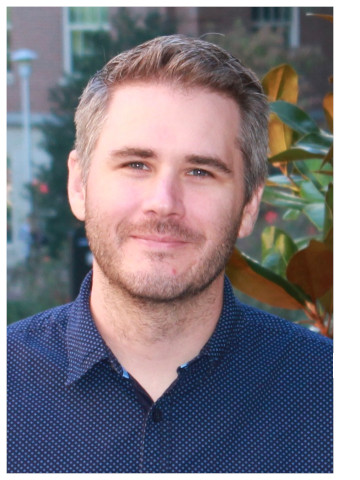 Dr. Dirk Davis is a Global Health Instructor and faculty member in the Center for Health Policy and Inequities Research, the Duke Global Health Institute, and the Duke Sexual and Gender Minority Wellness Program. Dr. Davis’s work focuses on improving the health of sexual and gender minority communities through community-engaged behavioral interventions. In this interview, we discuss his journey into global health as a Peace Corps Volunteer, his graduate research improving sustainable HIV care and PrEP engagement among gay and bisexual men in Guatemala, and his current work at Duke including his recently awarded NIMH K01 grant.
Dr. Dirk Davis is a Global Health Instructor and faculty member in the Center for Health Policy and Inequities Research, the Duke Global Health Institute, and the Duke Sexual and Gender Minority Wellness Program. Dr. Davis’s work focuses on improving the health of sexual and gender minority communities through community-engaged behavioral interventions. In this interview, we discuss his journey into global health as a Peace Corps Volunteer, his graduate research improving sustainable HIV care and PrEP engagement among gay and bisexual men in Guatemala, and his current work at Duke including his recently awarded NIMH K01 grant.
Dr. Davis discovered public health during his senior year of college and was inspired to join the Peace Corps in rural Guatemala. He was a preventive health volunteer working in and collaborating with Indigenous communities. Here, he began his involvement in HIV prevention, and learned the unique benefits of grassroots, community engagement. After five years in Guatemala, Dr. Davis determined that he required further training in evidence-based practices to create sustainable difference in these communities. He decided to pursue his MPH and PhD in Health Behavior at UNC Chapel Hill. He continued collaborating with one of his advisors, Dr. Clare Barrington, who was one of the few public health researchers in Guatemala at the time performing HIV research. During this time, Dr. Davis firmed his research interests in global LGBTQ+ health, with his PhD dissertation focused on how health navigation can be used to improve mental health and help gay and bisexual men living with HIV stay engaged in HIV care and aid in viral suppression in Guatemala City.
After completing his PhD, Dr. Davis was a Fogarty GloCal Global Health Postdoctoral Fellow at the University of California Global Health Institute where he was able to bridge his HIV research in Guatemalan urban centers with Indigenous gay and bisexual men in rural communities by conducting formative qualitative research with key stakeholders and community members.
Dr. Davis began his time at Duke as a Postdoctoral Fellow in the Duke Interdisciplinary Research Training Program in AIDS. He received a CFAR microgrant to conduct extend his research with Indigenous gay and bisexual Guatemalan men by conducting a sociobehavioral survey. The community response to this survey has been incredibly positive and participants were eager to share their unique experiences. The survey recently closed with 395 participants and is the largest cohort of Indigenous sexual minority individuals in the region. Dr. Davis is inspired by the community response and notes this only further demonstrates the need for spaces and services for LGBTQ+ populations in LMICs.
With his K01 grant, Dr. Davis aims to build upon the program in Guatemala to integrate mental health services into existing HIV prevention and care programs. Dr. Davis will be collaborating with a community partner, Colectivo Amigos contra el Sida (CAS), an established HIV community prevention, care, and advocacy organization, to provide emotional wellbeing services for gay and bisexual men. The intervention consists of ten LBGTQ-affirmative cognitive behavioral therapy sessions, adapted to the Guatemalan context, with the objective of reducing anxiety and depression while also improving PrEP uptake and other HIV behaviors and outcomes for gay and bisexual men. With the K01, Dr. Davis hopes to gather enough evidence to scale-up and conduct a fully powered randomized control trial in different contexts and populations in Guatemala and throughout Central America.
Dr. Davis enjoys that his research gives him the opportunity to engage with incredible community partners in the field, some of whom he has been working with for over 10 years. Through these bidirectional, collaborative relationships, Dr. Davis, the community partners, and research participants learn from each other and consistently work to improve and grow services. Dr. Davis notes that although there are challenges to working in settings where sexual and gender minority communities experience limited protections and heightened stigmatization, it is rewarding to hear participant stories and to see progress in communities and throughout Guatemala.
Collaborating with and receiving support from CFAR and the SBS Core has been “super helpful” for Dr. Davis and advancing his research. Dr. Davis appreciates the assistance CFAR provided—in particular Dr. Amy Corneli who is also a mentor of his—through both the grant application processes including reviewing and providing feedback to strengthen his proposals. The CFAR microgrant award Dr. Davis received allowed him to develop his research and the evidence base for his K01 grant. Dr. Davis is excited to delve into his K01 grant with continued support from CFAR and SBS Core.